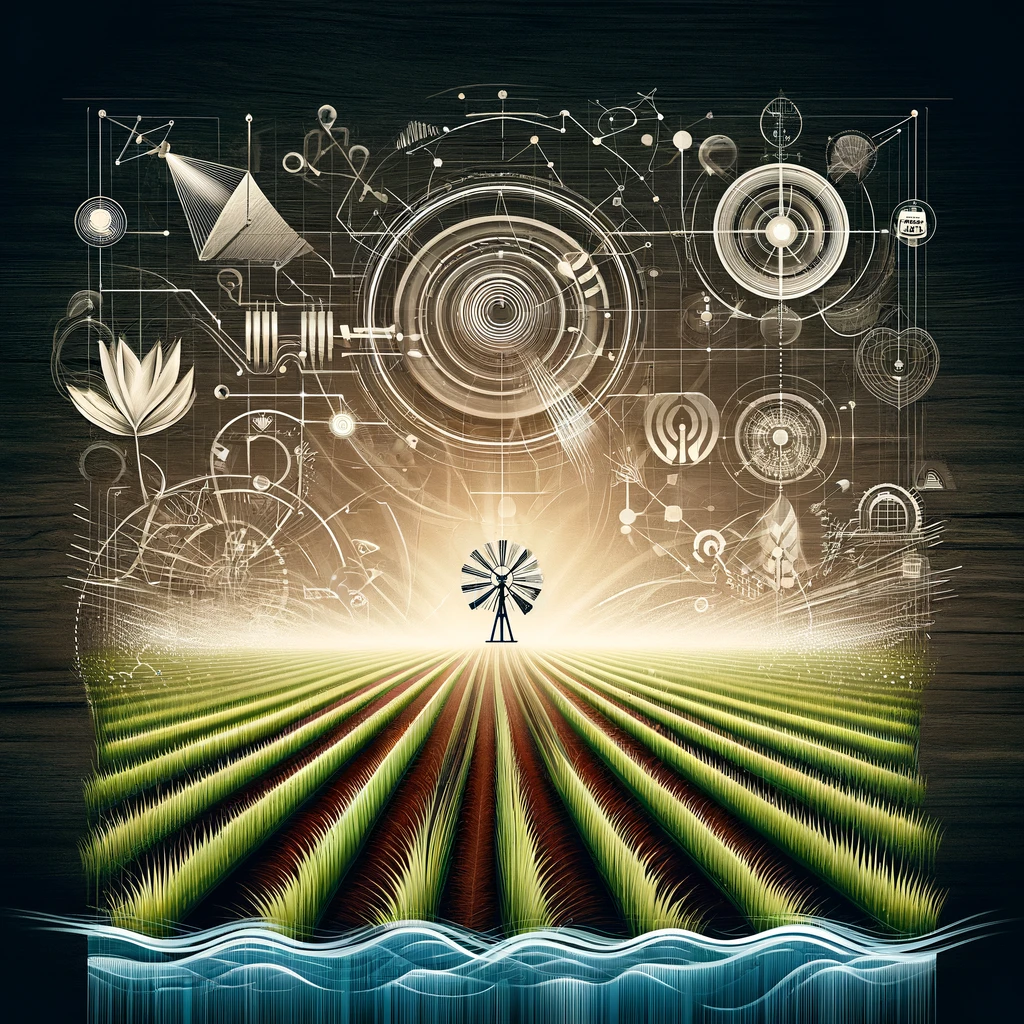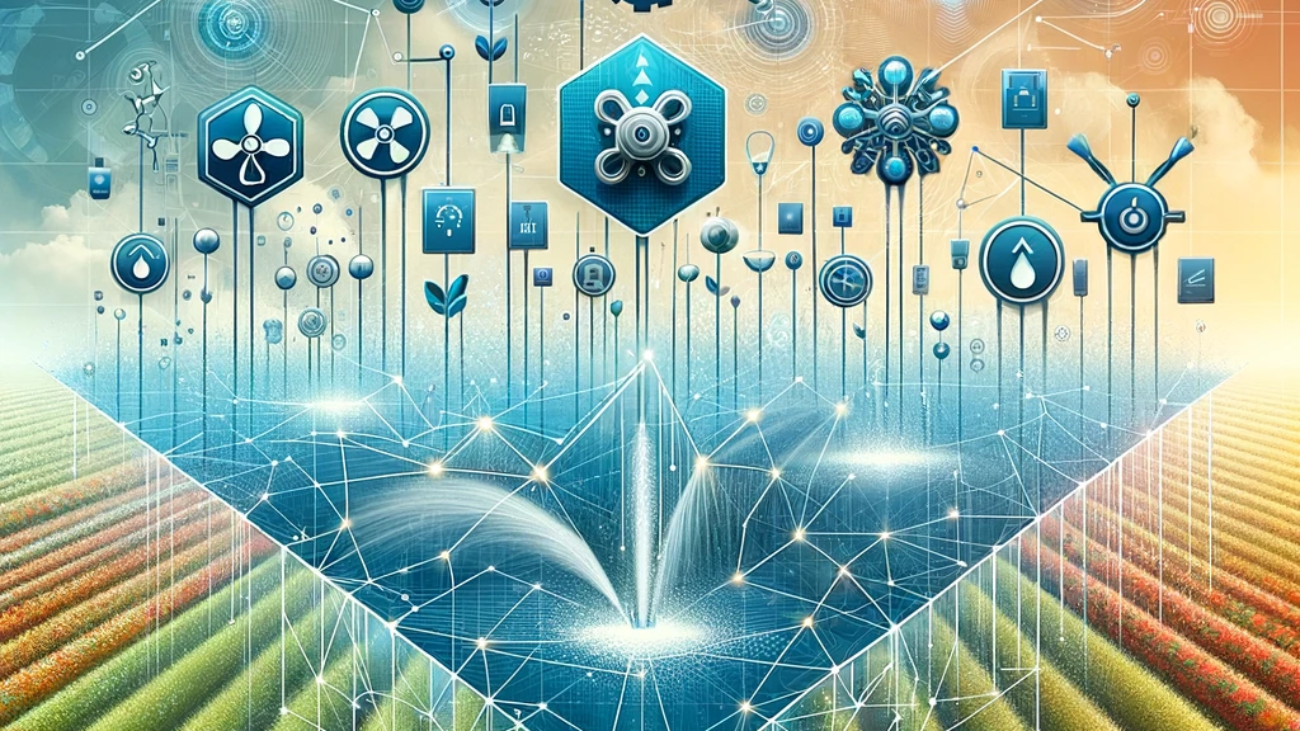In the face of growing water scarcity and the increasing demand for food production, smart irrigation systems have emerged as a vital solution for modern agriculture. These advanced technologies, including automated sprinklers, soil moisture sensors, and AI-based irrigation scheduling, are transforming traditional farming practices by optimizing water use and enhancing crop growth. As farmers strive to meet the challenges of climate change and resource limitations, the adoption of smart irrigation systems offers a promising path towards sustainable and efficient agricultural practices.
This article explores three key components of smart irrigation systems that are revolutionizing water management in agriculture. We will delve into the technology behind automated sprinklers and their impact on precise water application, examine the role of soil moisture sensors in providing real-time data for efficient irrigation, and discuss how AI-based irrigation scheduling represents the pinnacle of precision farming. By understanding and implementing these innovative solutions, farmers can significantly improve water use efficiency, reduce waste, and promote healthier crop growth.
Automated Sprinklers: Revolutionizing Water Management in Agriculture
Smart irrigation systems are transforming the agricultural landscape, and automated sprinklers are at the forefront of this revolution. These systems utilize advanced technology to precisely apply water where and when it is needed, minimizing waste and promoting efficient water use.
Technology Behind Automated Sprinklers:
Automated sprinkler systems are equipped with sensors and timers that control the release of water. These systems can be programmed to operate at specific times of the day, ensuring that crops receive adequate moisture without over-irrigation. Some advanced models incorporate weather data and soil moisture levels to adjust watering schedules in real time.
Installation and Benefits:
Installing an automated sprinkler system involves placing sprinkler heads strategically across the field and connecting them to a central control unit. This unit can be managed remotely, allowing farmers to make adjustments from their smartphones or computers. The benefits are significant: automated sprinklers ensure uniform water distribution, reduce labor costs, and save water by preventing runoff and evaporation.
Automated sprinklers are particularly beneficial in regions facing water scarcity. By optimizing water usage, these systems contribute to sustainable farming practices and help maintain healthy crop growth.
Soil Moisture Sensors: A Game-Changer for Efficient Irrigation
Soil moisture sensors play a crucial role in smart irrigation systems by providing real-time data on soil moisture levels. This information is vital for making informed irrigation decisions and ensuring that crops receive the right amount of water at the right time.
How Soil Moisture Sensors Work:
Soil moisture sensors measure the volumetric water content in the soil. These sensors come in various types, including capacitive, resistive, and tensiometric sensors, each with its unique method of detecting moisture levels. The data collected by these sensors is transmitted to a central control system, where it is analyzed to determine the soil’s hydration status.

Optimizing Irrigation Schedules:
With real-time data from soil moisture sensors, farmers can avoid over- or under-watering their crops. This precision helps conserve water and ensures that plants receive the optimal amount of moisture for their growth stages. Additionally, soil moisture sensors can alert farmers to potential issues such as dry spots or areas with poor drainage, allowing for targeted interventions.
The implementation of soil moisture sensors leads to significant water savings and healthier crops, making them a game-changer for efficient irrigation in agriculture.
AI-Based Irrigation Scheduling: Precision Farming at Its Best
Artificial intelligence is making waves in agriculture, particularly in irrigation scheduling. AI-based systems analyze a multitude of factors to create optimal watering schedules, ensuring that crops receive precise amounts of water for maximum growth and efficiency.
How AI Algorithms Work:
AI algorithms in irrigation systems take into account various data points, including weather forecasts, soil conditions, crop types, and growth stages. By processing this information, the AI can predict the best times to irrigate and the necessary water amounts. These systems can also learn and adapt over time, improving their accuracy and efficiency with each irrigation cycle.
Advantages of AI-Driven Scheduling:
The primary advantage of AI-based irrigation scheduling is its precision. By considering a wide range of variables, these systems can tailor irrigation practices to the specific needs of each crop. This precision reduces water usage, minimizes environmental impact, and enhances crop growth. Additionally, AI-driven systems can respond quickly to changing conditions, such as unexpected rainfall or drought, ensuring that crops are always adequately hydrated.
AI-based irrigation scheduling represents the pinnacle of precision farming, offering a sustainable solution to water management challenges in agriculture. By adopting these advanced technologies, farmers can optimize their irrigation practices, conserve valuable resources, and promote healthier crop growth.
By integrating automated sprinklers, soil moisture sensors, and AI-based irrigation scheduling, farmers can revolutionize their water management practices. Automated sprinklers ensure precise water application, reducing wastage and ensuring uniform distribution across the field. Soil moisture sensors provide real-time data on the soil’s hydration levels, enabling farmers to make informed decisions about when and how much to irrigate. AI-based irrigation scheduling further refines this process by analyzing various factors such as weather forecasts, soil conditions, and crop requirements to create optimal watering schedules.
These smart irrigation systems not only conserve water but also enhance crop growth, contributing to more sustainable and efficient agricultural practices. By reducing water usage and preventing over- or under-irrigation, these technologies help maintain healthy crops and improve yield. Moreover, the adoption of such advanced systems supports environmental sustainability by minimizing water waste and promoting efficient resource use. As a result, smart irrigation systems represent a significant step forward in addressing the challenges of modern agriculture, ensuring that farmers can meet the growing demand for food while preserving vital natural resources.


Leave A Comment